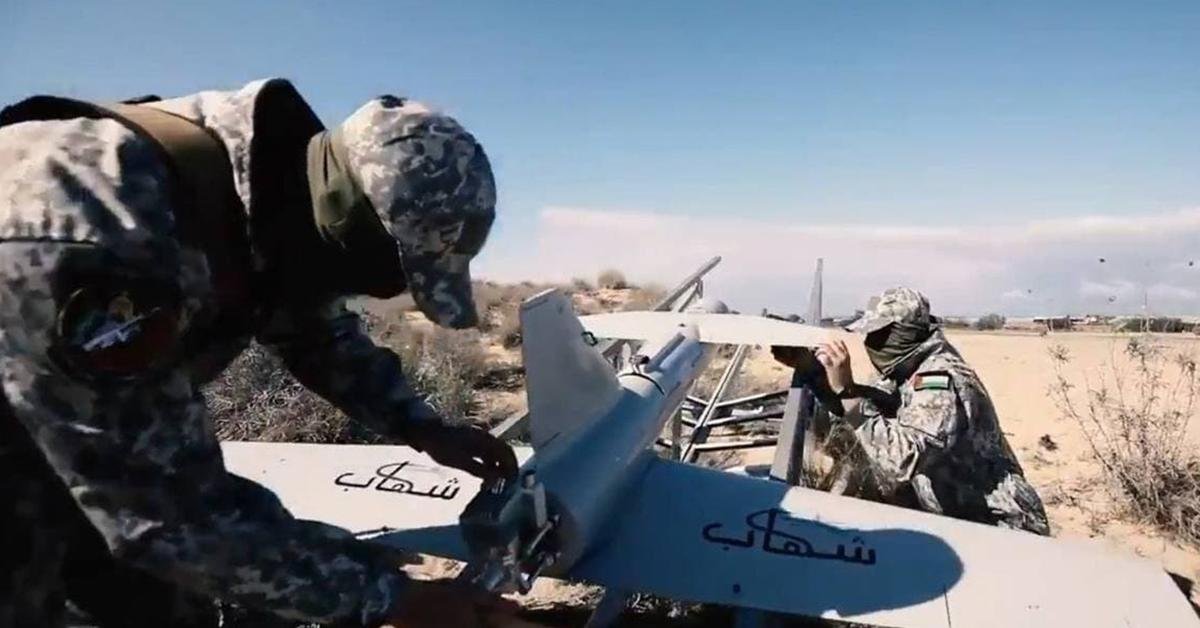How will Iran respond to the conflict in Israel/Gaza?
21 November 2023
Iran is pursuing contradictory priorities: preserving its proxy network and preserving its reputation of reliability, which implies an active hostility to Israel but still short of a wider war that it does not want.
By Kais Makhlouf, MENA analyst
A month after the 7 October attack by Hamas against Israel, speculation about Iran’s role in the current crisis is rife, as the Iranian government has been tight-lipped about its intentions. The rhetoric among Iranian-backed armed groups claiming to fight Israel focuses exclusively on land targets, although Hamas rocket attacks have been close to Israeli ports and the Houthis in Yemen have attempted target Eilat in the south, as well as a recent operation against Israeli shipping. Others, such as Hezbollah, have refrained from action. Iran itself is moving cautiously.
Iran’s influence
Iran spends significant resources on its rivalry with Israel. Perhaps most importantly, this policy is meant for domestic consumption. Iran’s frontal opposition to Israel serves to legitimise its foreign policy and justify the resources allotted to the security apparatus despite scarcity at home and Western economic sanctions. This also helps it capitalise on a widespread sentiment in the Middle East that most regional governments are “collaborationist regimes” which perpetuate what is perceived as a colonial occupation of Palestine. To those who will listen, Iran can argue that it is the only state willing and able to act.
This image, mixed with violence, cajoling and strategic opportunism has served Iran greatly, and the regime will go lengths to preserve its soft power in the galaxy of armed groups with no inclination, or hope, for alternative backing. To preserve the loyalties of its proxies, Iran must therefore show that it stands by them in times of crisis. Now, having built its foreign policy around anti-Israeli policies, Iran finds itself in a bind when the anti-Israeli act par excellence is committed by someone else. Iran must support its perpetrator, regardless of whether it has a say in its behaviour, and of how nihilistic the protégé is. Anything less would substantially weaken Iranian influence with such groups.
Proxy actions
This is less of an issue with semi-state groups like Hezbollah and the Houthis, who are subject to many of the same constraints as states. Hezbollah has infiltrated the Lebanese state and stands to benefit substantially from oil & gas extraction in the Eastern Mediterranean. Likewise, the Houthis will seek to preserve the significant tax income from trade flowing into Hudaydah port. Previously, the Houthis’ own targeting parameters pointedly avoided targeting shipping on a widespread basis, so as not to undermine its case for statehood by appearing as a threat to maritime trade. It makes sense then, that these two groups have refrained from attacking maritime targets indiscriminately because of their own agendas. But this does not rule out limited operations, particularly by the Houthis as there is likely to be less direct retaliation – at least for now.
Proxy networks are a “cheap” source of influence but cannot be mobilised as readily. Yet, Iran does not want war. Iran must therefore pursue two almost contradictory priorities: preserving its proxy network and preserving its reputation of reliability, which implies active hostility to Israel. To square this circle, it has opted for a slow escalation via its proxies, leveraging the Houthi, the Hashd and Hezbollah into taking at least some military action against Israel (possibly also US military forces), in the expectation that retaliation will befall those groups rather than its own assets. Certainly, Iran will have made the calculus that Israel, like itself, does not want a wider conflict to erupt.
It is Risk Intelligence’s assessment that this current dynamic is likely to dominate in the short term. Iran likely considers the rhythm and duration of “required” escalation to be determined by Israel’s operations in Gaza. The longer the Israeli operation in Gaza lasts, the more likely Iran will have to up the ante to preserve its interests, and the more likely a misstep is to occur. As well, there is always the chance of a rogue decision or a change in strategy by Iran or the plethora of armed group it backs. Therefore, the current dynamic might not be permanent.
RECENT WEBINAR:
The implications of fighting in Israel and Palestinian territories
What are the immediate implications for shipping operations and the longer-term impacts on the Middle East? The webinar from 19 October offered a deeper look at the Middle East and how the renewed violence in Gaza can impact your operations.

